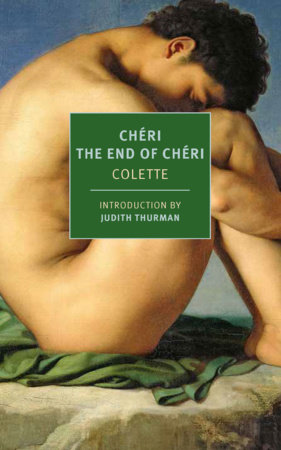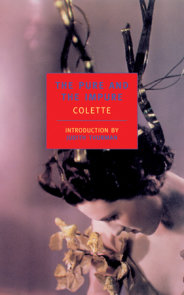

Chéri and The End of Chéri
By Colette
Introduction by Judith Thurman
Translated by Paul Eprile
By Colette
Introduction by Judith Thurman
Translated by Paul Eprile
By Colette
Introduction by Judith Thurman
Translated by Paul Eprile
By Colette
Introduction by Judith Thurman
Translated by Paul Eprile
Category: Women's Fiction
Category: Women's Fiction

-
$16.95
Nov 08, 2022 | ISBN 9781681376707
-
Nov 08, 2022 | ISBN 9781681376714
YOU MAY ALSO LIKE

The Cliffs: Reese’s Book Club
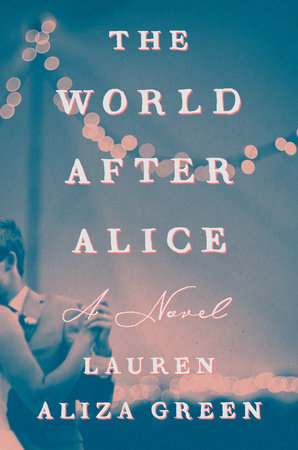
The World After Alice

What’s in a Kiss?

Cash Delgado Is Living the Dream

The Burnout
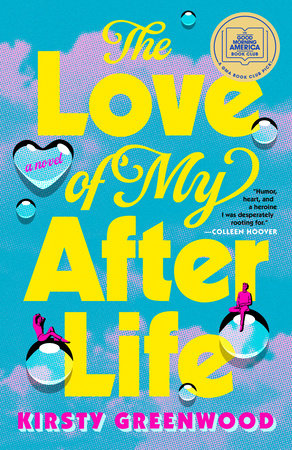
The Love of My Afterlife

The Match

Running Hot
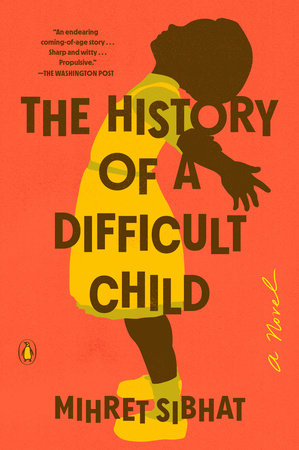
The History of a Difficult Child
Praise
“Colette is doing many (if not more) of the things her literary confreres are noted for as well. She’s as creative as Stendhal in her use of point of view, which hummingbirds back and forth between omniscience and interior monologue. Her social canvas, from the demi-monde to the haut monde, is as deep and wide as Balzac’s. Her savagery is laugh-out-loud-funny, like Flaubert’s….Chéri and The End of Chéri have aged beautifully…Colette’s great novellas are brief, but they are not small.” —Kevin Brown, Rain Taxi
“Intense and sensuous, her fiction is full of life and laughter.” —John Self, BBC
“Colette writes like a fencer, in controlled, impressionistic sallies. . . .Eprile’s exquisite translation catches the glint, now songlike and now savage, of Colette’s sentences, her dialogues filed to a point.” —Yasmine Seale, 4 Columns
“Steeped in the hedonism of the noble class, it embraces the splendor of beauty, the excitement of vulgarity, the exquisite brutality of unfettered emotions, parsing through the inner lives of the aging Léa and her lover Chéri with a naked prose not unlike the autofiction of the past years.” —Beatrice Loayza, “Writers on their Favorite Books of 2022,” Bookforum
“But Colette’s most marvelous and mature reckonings with age and youth, the newly and gracefully translated Chéri (1920) and The End of Chéri (1926), demonstrate the derangement of infancy extended beyond its natural limits. A woman who refuses to submit to the standard set by the girl grows old with poise, while a perpetually puerile young man remains pitiful forever. Male or female, Colette concludes, an eternal child is doomed to grow grotesque.” —Becca Rothfeld, Bookforum
“[Eprile’s translation is] lean and lucid.” —Michael LaPointe, The New Yorker
“These portraits of an aging grande horizontale and her beautiful toyboy are the most convincing arguments I know of against political correctness in fiction. Colette never wrote a bad sentence but countless good ones. Paul Eprile has miraculously recreated her in English for our times.” —Edmund White
“Paul Eprile’s vivid new translation of Chéri and The End of Chéri brings all the savage tenderness of Colette’s two-part masterpiece to life. These great novels of the erosion time wreaks upon desire and the inevitably tragic fate of civilization’s discontents beautifully reflect their moment—from the conclusion of the Belle Époque to the aftermath of the first World War. Yet English language readers today will recognize much of their own world, with its irrevocable chasm between past and present, in these subtle, crystalline, pages.” —Susan Stewart
“The two Chéri novellas probably form Colette’s masterpiece. . . They are her masterpieces because they transcend the notion of the battle between the sexes by concentrating on an exceptionally rigorous analysis of the rules of war. . . . The Chéri novels are about the power-politics of love, and Léa and Chéri could be almost any permutation of ages or of sexes. . . . They could both as well be men; or both women.” —Angela Carter, The London Review of Books
“Colette was not false, not even when she lied. Once a lie was transformed into fiction it stood as a truth, and survived.” —Mavis Gallant
“We call her great, for her gift to us is not limited to the art of writing: it is the gift of a culture.” —Rosemary Tonks, The New York Review of Books
21 Books You’ve Been Meaning to Read
Just for joining you’ll get personalized recommendations on your dashboard daily and features only for members.
Find Out More Join Now Sign In








